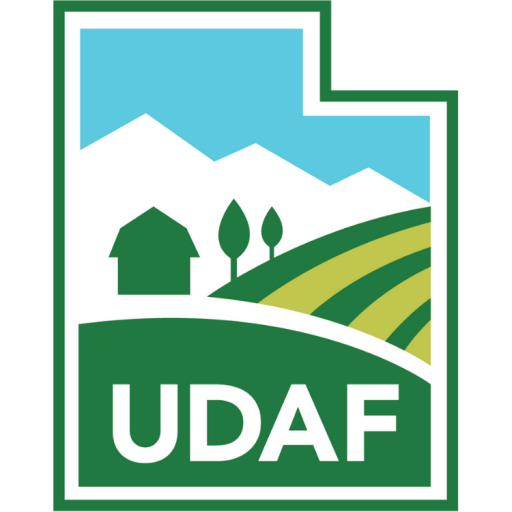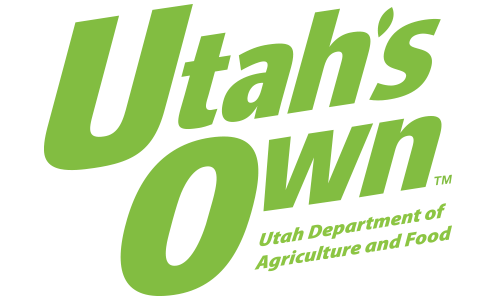The Utah Industrial Hemp Program ensures safety, and compliance of the industrial hemp industry by monitoring Utah’s processors and retail establishments. This program ensures consumer safety and product integrity by approving products prior to entering the Utah market and verifying through inspections that safety and label standards are met.
All cannabinoid products marketed or sold in Utah must be registered with the UDAF. Please see the Registered Product List for a record of currently registered products.
Important News:
Industrial hemp is now live on the Agriculture Information Management System (AIMS)!
If you currently have a UtahID account, you will be able to login using those credentials. If you do not have a UtahID, you will be directed to create one. For more information about UtahID, please visit https://idhelp.utah.gov.
Guides to AIMS

Helpful Links:
- Cannabinoid Product Registration
- Industrial Hemp Laws and Rules
- Cannabinoid Processor Licenses
- Hemp Laboratory Licenses
- Industrial Hemp Retail Permit
Additional Information:
Industrial Hemp FAQs
What is industrial hemp?
- Cannabis Sativa with less than 0.3% THC is classified as industrial hemp. Industrial hemp products encompass a wide range of items, such as CBD products, hemp fiber, hemp seed oil, and more.
What is medical cannabis?
- Cannabis (aka “marijuana”), a variant of Cannabis sativa, typically contains THC levels exceeding 0.3%. Medical cannabis is utilized for therapeutic purposes to address various medical conditions. In Utah, medical cannabis is exclusively accessible through licensed medical cannabis pharmacies with a doctor's prescription.
How are they the same and how are they different?
- Industrial hemp and medical cannabis originate from the same plant genus, akin to the distinction between sweet corn and field corn, which, while both are corn, serve different purposes.
- Although industrial hemp and medical cannabis products may share visual similarities and contain many of the same chemical compounds, the legal differentiation hinges on the level of tetrahydrocannabinol (THC) present in the plant. If the cannabis plant contains more than 0.3% THC, it is categorized as medical cannabis or marijuana.
Why is the Department of Agriculture and Food Involved?
- The Utah Department of Agriculture and Food has been designated by the Utah state legislature as the department responsible for regulating the processing, testing, and distribution of hemp-based products in the state.
Do I have to get the full panel COA from the state lab to register a product?
- No, only a sample for cannabinoid profile testing needs to be submitted. A full Certificate of Analysis (COA) will still be required for product registration, but the other tests can be conducted by an independent laboratory.
What is considered one cannabinoid product for the purposes of product registration?
- An individual Cannabinoid product is defined as a product with the same cannabinoid content and a single flavor or scent.
- If a product has multiple flavors, each flavor must be registered and paid for separately.
- If a product comes in different cannabinoid concentrations, these variations are considered separate products and must be registered individually.
What is a cannabinoid product class?
- A cannabinoid product class is a category of cannabinoid products that share all ingredients in common and are manufactured by or for the same company.
- A cannabinoid product class can be registered for a single fee. For instance, if you have 5 mg lime-flavored gummies available in both 2-count and 5-count packaging, they can fall under the same product class registration.
Will I need to restrict the age of everyone entering my store or put a statement in the window if I sell cannabinoid products?
- No, there is no requirement to restrict the age of everyone entering your store or display a statement in the window. The age restriction only pertains to the sale or gift of products containing THC or THC analogs. Currently, the law does not mandate retailers to implement window signage or entry age restrictions.
- As of May 3rd, 2023, retailers are required to ensure that products containing THC or THC analogs are not sold or gifted to anyone under the age of 21.
All of the products I sell are below 0.3% THC. Do I still have to do age verification?
- Age verification is only required for the sale or gift of cannabinoid products containing THC or THC analogs.
Does UDAF regulate Hemp growers in the state?
- As of May 2022, the USDA is responsible for regulating and licensing hemp cultivators in Utah.
- All cultivators are required to apply for and secure a USDA license. For inquiries or assistance, please contact farmbill.hemp@usda.gov or call (202) 720-2491.
- A USDA license will grant permission for the cultivation and storage of your own biomass exclusively. Engaging in other activities, such as receiving or storing biomass or concentrates from external sources, will necessitate obtaining a UDAF cannabinoid processor license, typically a Tier 4 license.
Is a transportation permit required to transfer industrial hemp in Utah?
-
- Transportation permits are no longer required for the transportation of industrial hemp material. A transport manifest will now take place of the transportation permit. This manifest is required to be with all industrial hemp material that is being transported and is to be kept with records.
- Each movement of industrial hemp material shall include a transport manifest that includes the following information:
- a copy of the COA for each batch included in the shipment;
- the location of the sending and receiving parties;
- proof of registration or licensure for the sending and receiving parties; and
- a bill of lading for the transported material.
- Bill of lading is a detailed list of a shipment of goods in the form of a receipt given by the carrier to the person consigning the goods.
See R68-25-13 for more info
Laboratory Testing
Please contact Laboratory Services for questions related to the testing or sample submission process.
Complaint Form
Please fill out this form if you have concerns regarding cannabinoid products, hemp processors, or retail establishments.






